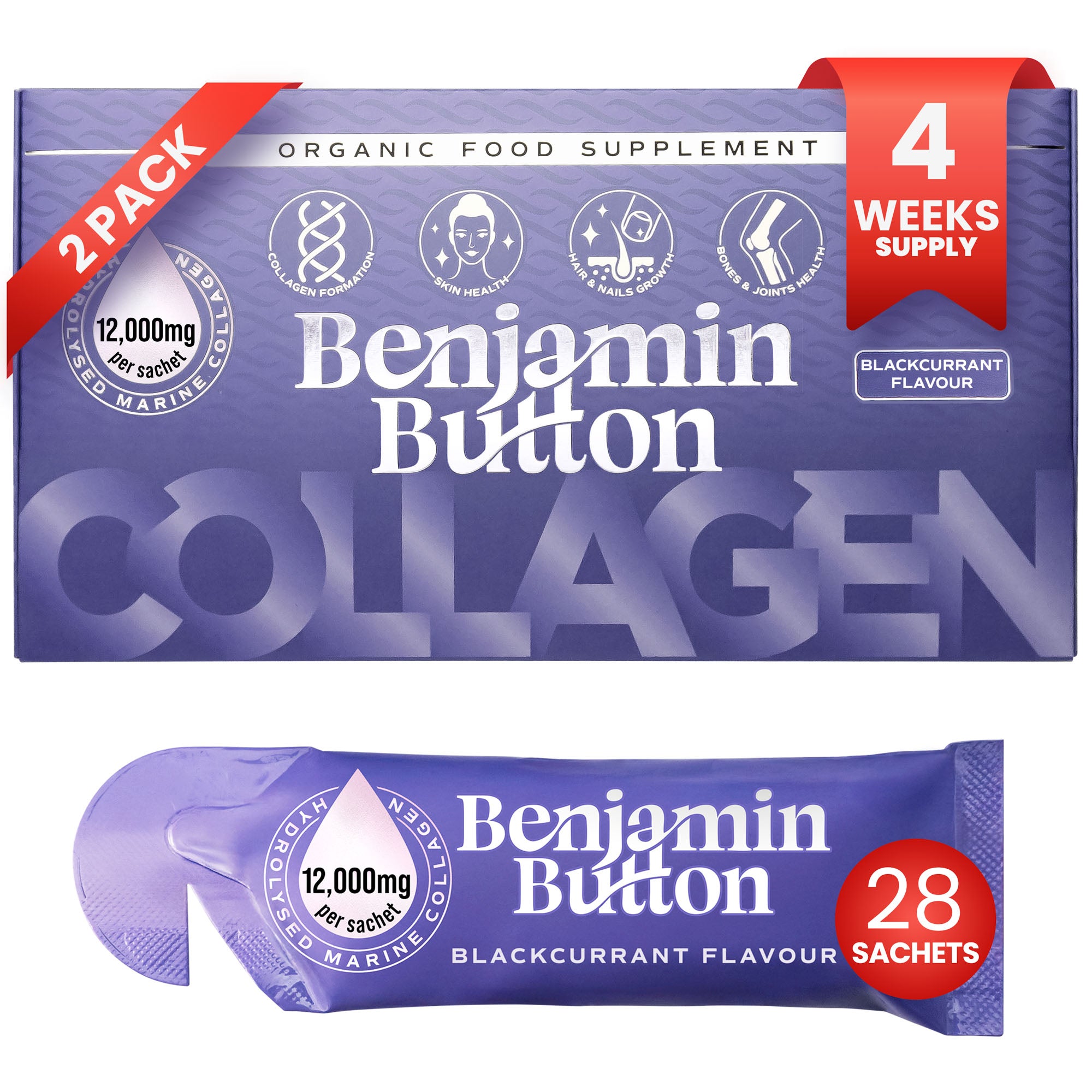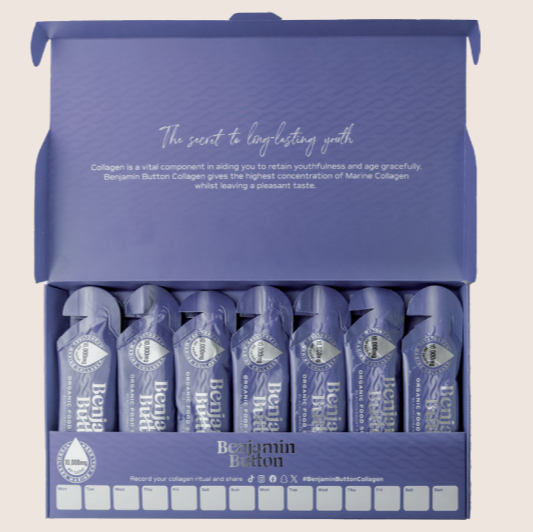The Essential Guide to Understanding Collagen Types for Health and Beauty
As we explore the complex world of collagen types, it’s crucial to understand their targeted roles in our health and beauty routines. The prominence of collagen type 1 and collagen type 3 is particularly noteworthy, especially when considering their synergistic benefits for skin and joint health. A common question arises—what are the unique benefits of collagen type 1, 2, and 3? These three types of collagen, often found in various supplements, work collectively to bolster not just our appearance but also our overall well-being, contributing to skin elasticity, hydration, and joint support.
Moreover, many seek to know how to maximize collagen benefits; a well-rounded diet rich in nutrients like vitamin C and zinc can significantly enhance collagen synthesis. Whether you are curious about collagen properties or contemplating which collagen supplement aligns with your health goals, knowing the diverse roles of each type can empower your choices. Allow the knowledge of collagen types to guide your journey toward radiant skin and vibrant health!
Decoding the Various Types of Collagen
The realm of collagen encompasses a fascinating complexity, having identified 28 distinct types of collagen thus far. Among these, Type 1, Type 2, and Type 3 collagen emerge as the most widely known and discussed. Each type plays a pivotal role within the body, promoting the well-being of skin, bones, joints, and more. For instance, bone collagen type is predominantly made up of Type 1 collagen, crucial for providing strength and structural integrity to bones.Furthermore, understanding the classification of collagen allows for a deeper appreciation of its benefits. Specialised bovine collagen, rich in bovine Type 1 and 3, has gained popularity for enhancing both skin and joint health. A common question arises: can you take collagen type 1, 2, and 3 together? The answer is affirmative! Combining these types can deliver a multitude of benefits, amplifying overall collagen health.
The Advantages of Collagen Types 1 and 3
When evaluating the benefits of collagen 1 and 3, it is impossible to ignore their powerful synergy in improving skin vitality, joint mobility, and overall health. These types of collagen are frequently paired in supplements due to their exceptional effectiveness in minimising wrinkles and boosting skin elasticity. Many individuals are drawn to the benefits of collagen type 1 and 3 for their significant impacts on hydration and skin tone.These collagens extend beyond cosmetic benefits, playing essential roles in supporting organ strength and muscle maintenance. Choosing collagen supplements requires careful consideration of the specific health goals—whether focusing on skin rejuvenation or promoting joint support, collagen 1, 2, and 3 benefits must be assessed collectively.
As the most abundant protein in the human body, collagen supplies vital structure and support to skin, bones, muscles, and connective tissues. The most prominent types, Type 1, Type 2, and Type 3 collagen, are often discussed for their unique contributions. But where is collagen found, and how do these types diverge? Let’s explore.
Understanding Collagen
Collagen serves as the scaffold for your body, retaining the elasticity and integrity of skin, joints, and surrounding tissues. However, as one ages, collagen production diminishes, leading to discernible signs of ageing, such as wrinkles, joint stiffness, and weakened connective tissues.Exploring the Types of Collagen
While there are 28 types of collagen, Type 1, Type 2, and Type 3 are the most significant in supplements and skincare.1. Type 1 Collagen
- Where It’s Found: Skin, bones, tendons, and ligaments.
- Primary Role: Provides crucial structure, strength, and elasticity to skin and various tissues.
-
Benefits:
- Minimises wrinkles and fine lines.
- Enhances skin elasticity and hydration.
- Fortifies bones and connective tissues.
Type 1 collagen is the most prevalent in the body and is highly effective in combating signs of ageing. Marine collagen, specifically featured in Benjamin Button Marine Collagen Sachets, boasts a high concentration of Type 1 collagen—ideal for skin health.
2. Type 2 Collagen
- Where It’s Found: Cartilage and joints.
- Primary Role: Essential for maintaining joint health by supporting cartilage structure.
-
Benefits:
- Enhances joint mobility and flexibility.
- Addresses symptoms of arthritis and joint discomfort.
Type 2 collagen is primarily sourced from bovine cartilage and is often used in supplements specifically targeting joint health.
3. Type 3 Collagen
- Where It’s Found: Skin, muscles, and blood vessels.
- Primary Role: Complements Type 1 in maintaining skin elasticity and reinforcing organs.
-
Benefits:
- Boosts skin firmness and tone.
- Supports muscle and vascular health.
Type 3 collagen is abundant in youthful skin but diminishes over time, contributing to sagging and the formation of wrinkles. It is commonly included in bovine collagen supplements, which often contain both Type 1 and Type 3 collagen.
The Synergy of Type 1 and 3 Collagen
Type 1 and Type 3 collagen frequently come together in supplements, capitalising on their complementary benefits for skin, hair, and nails.Combined Benefits:
- Enhances skin elasticity and hydration levels.
- Reduces visible signs of ageing.
- Promotes stronger hair and nail growth.
Supplements such as Benjamin Button Marine Collagen primarily centre on Type 1 collagen, renowned for its skin-enhancing properties, while other products may incorporate both Type 1 and 3 for an expanded range of benefits.
Natural Sources of Collagen
Collagen exists in both animal and plant-based sources; however, the most potent forms of collagen are derived from animals.Primary Natural Sources of Collagen:
- Bone Broth: Packed with Type 1 and Type 2 collagen.
- Fish and Fish Skin: A rich source of Type 1 marine collagen.
- Chicken Skin and Cartilage: Contains Types 1, 2, and 3 collagen.
- Egg Whites and Shell Membranes: Deliver amino acids essential for collagen production.
While plant-based foods do not contain collagen, they can significantly enhance your body's collagen synthesis through nutrients like vitamin C, zinc, and amino acids.
Your Questions Answered: Collagen Types
1. What sets Type 1, 2, and 3 collagen apart?
- Type 1: Optimised for skin, bones, and connective tissue.
- Type 2: Primarily focused on joint and cartilage health.
- Type 3: Essential for supporting skin, muscle, and vascular wellness.
2. Can I combine Type 1 and 3 collagen?
Absolutely! Blending Type 1 and 3 collagen heightens benefits for skin, hair, and nails.
3. Is marine collagen superior to bovine collagen?
Marine collagen (Type 1) offers more bioavailability, making it better for skin, while bovine collagen (containing both Type 1 and 3) supports comprehensive skin and joint health.
4. Where can collagen be located in the body?
Collagen is found in skin, bones, tendons, ligaments, cartilage, muscles, and blood vessels.
5. Can I take all types of collagen together?
Indeed, all types can be consumed concurrently for enhanced overall benefits.
6. What are the distinct advantages of collagen Types 1 and 3?
Collagen Types 1 and 3 collaborate to enhance skin health, boost elasticity, and promote overall vitality.
7. How many collagen types exist?
There are a remarkable 28 types of collagen, each tailored to serve its own specific function within the body.
Why Opt for Benjamin Button Marine Collagen?
Benjamin Button Marine Liquid Collagen delivers a potent 12,000mg Hydrolysed Marine Liquid Collagen per serving, designed for optimal skin elasticity and anti-aging effects.Key Attributes:
- Infused with 60mg of Vitamin C to enhance absorption.
- Includes sodium hyaluronate for additional hydration.
- Available in tempting flavours: mango, orange, and blackcurrant.
- Liquid collagen offers up to 95% absorption within just 30 minutes.
Radiant Skin and Resilient Joints Await
Whether your goal encompasses skin radiance, joint support, or overall vitality, understanding the various types of collagen can significantly inform your supplement choices. Marine collagen (Type 1) is particularly well-suited for anti-ageing purposes, while Type 2 and Type 3 complement objectives surrounding joint health and overall wellness.Shop Benjamin Button Marine Liquid Collagen today to experience premium Type 1 collagen and embark on your journey towards luminous skin and enriched health!
Grasping the various types of collagen is vital, especially when considering the unique benefits they offer to your health and beauty routine. The exploration into whether different types of collagen exist often reveals remarkable insights into their functions. Among these, collagen type 1 and collagen type 3 shine, demonstrating their combined effectiveness in healing and rejuvenating tissues.
For those keen on learning about the benefits of collagen 1 and 3, the pairing delivers superb results for both aesthetic and functional health. This potent duo protects skin integrity and contributes to muscle and vascular well-being, showcasing their versatile applications.
Moreover, discussions concerning collagen properties and discrepancies among all types of collagen lend valuable insights into selecting the appropriate supplements. A common query arises: can you combine collagen types 1, 2, and 3? The response is an enthusiastic yes—this combination can pave the way for expansive health benefits that enhance overall well-being by addressing a multitude of concerns, from skin elasticity to joint health stability.
As we further delve into the classification of collagen, it becomes essential to note that while collagen type 1 primarily supports skin and bone structure, collagen type 2 focuses on joint health, and collagen type 3 serves a critical role in sustaining cellular structures within blood vessels. This knowledge lays the groundwork for choosing the most suitable collagen supplements that align with your distinct health objectives.
People frequently question the benefits of type 1 and 3 collagen owing to their synergistic effects on skin hydration and smoothness, underscoring the importance of achieving the right balance in combatting the signs of ageing. Throughout this journey, discerning whether collagen type 1 and 2 function together or recognising the disparities inherent in collagen 1 versus collagen 3 can further clarify your supplement pathways. Products such as Benjamin Button feature effective blends of these collagen types, highlighting the immense power of synergy within nutrient profiles.






















